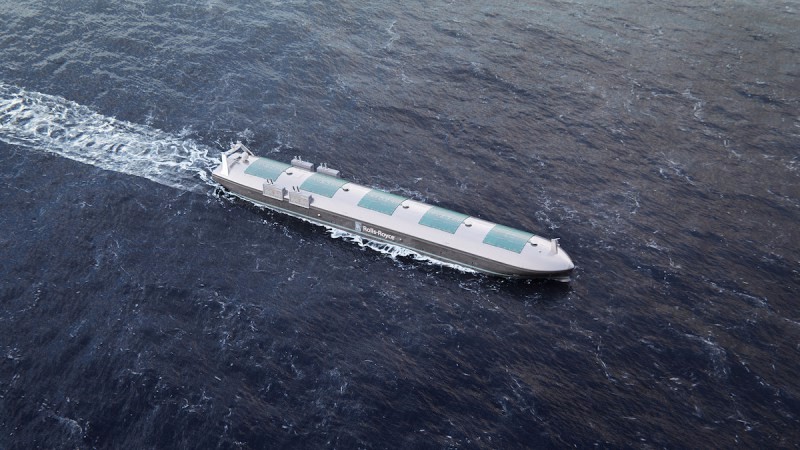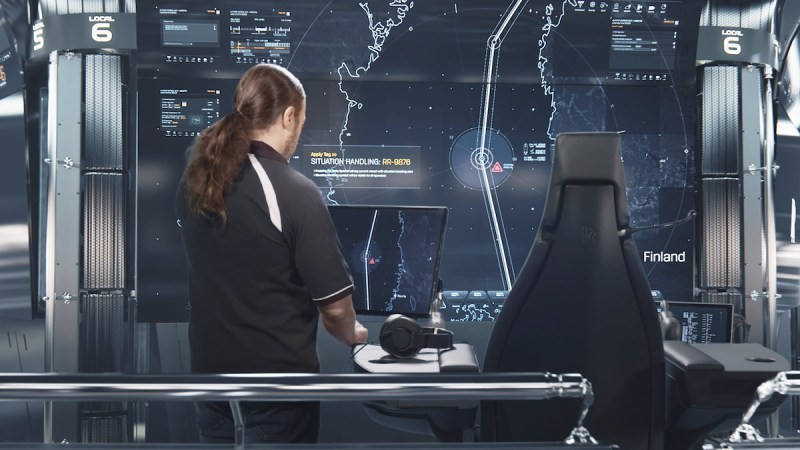by Mike Schuler
Rolls-Royce Reveals Vision of Shore-based Control Centers for Unmanned Cargo Ships
Rolls-Royce on Tuesday offered another glimpse into the future of unmanned shipping, revealing for the first time its vision for a land-based control center for the operation of autonomous ‘drone’ cargo ships.Image credit: Rolls-Royce
In photos and film released Tuesday, Rolls-Royce offers a vision in which a small crew of 7 to 14 people monitor and control the operation of a fleet of vessels across the world using interactive smart screens, voice recognition systems, holograms and surveillance drones to monitor what is happening both on board and around the ship.
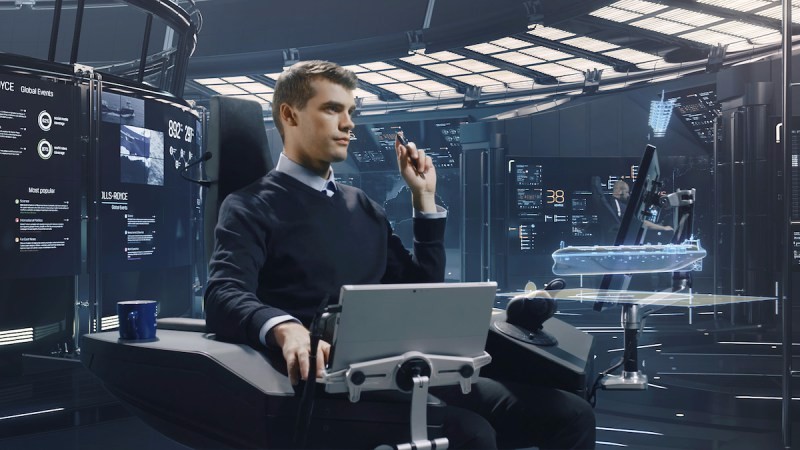 Iiro Lindborg, General Manager, Remote & Autonomous Operations, Ship Intelligence, Rolls-Royce, said: “We’re living in an ever-changing world where unmanned and remote-controlled transportation systems will become a common feature of human life. They offer unprecedented flexibility and operational efficiency. Our research aims to understand the human factors involved in monitoring and operating ships remotely. It identifies ways crews ashore can use tools to get a realistic feel for what is happening at sea.”
Iiro Lindborg, General Manager, Remote & Autonomous Operations, Ship Intelligence, Rolls-Royce, said: “We’re living in an ever-changing world where unmanned and remote-controlled transportation systems will become a common feature of human life. They offer unprecedented flexibility and operational efficiency. Our research aims to understand the human factors involved in monitoring and operating ships remotely. It identifies ways crews ashore can use tools to get a realistic feel for what is happening at sea.”
Rolls-Royce says the film, which we have provided at the bottom of the article, marks the final stage of research that will inform the design and construction of a remote operations test center before the end of this decade.
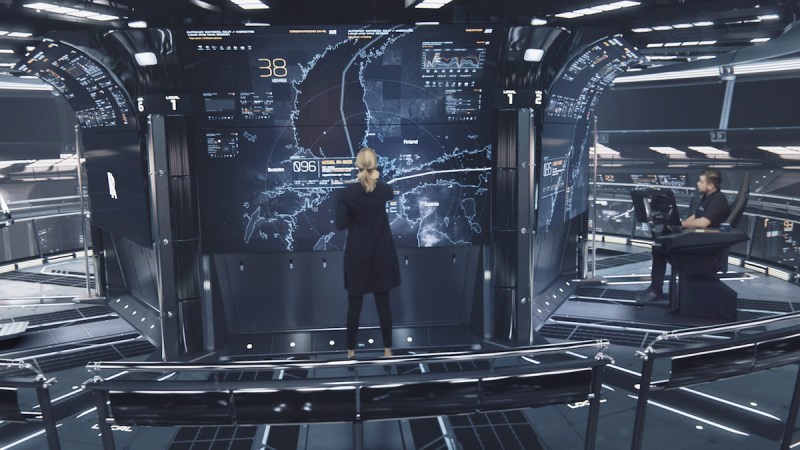 “The autonomous ship does not mean removing human beings entirely from the picture, as is sometimes stated,” says Eija Kaasinen, Principal Scientist at VTT Technical Research Centre of Finland, a partner in the research. “Unmanned ships need to be monitored and controlled and this will require entirely new kinds of work roles, tasks, tools and environments. The future shore control centre concept has been designed by emphasizing the user experience of the human operators. By focusing on the operators’ point of view, it is possible to introduce meaningful, pleasurable and engaging new roles for the ships’ shore control centre professionals.”
“The autonomous ship does not mean removing human beings entirely from the picture, as is sometimes stated,” says Eija Kaasinen, Principal Scientist at VTT Technical Research Centre of Finland, a partner in the research. “Unmanned ships need to be monitored and controlled and this will require entirely new kinds of work roles, tasks, tools and environments. The future shore control centre concept has been designed by emphasizing the user experience of the human operators. By focusing on the operators’ point of view, it is possible to introduce meaningful, pleasurable and engaging new roles for the ships’ shore control centre professionals.”
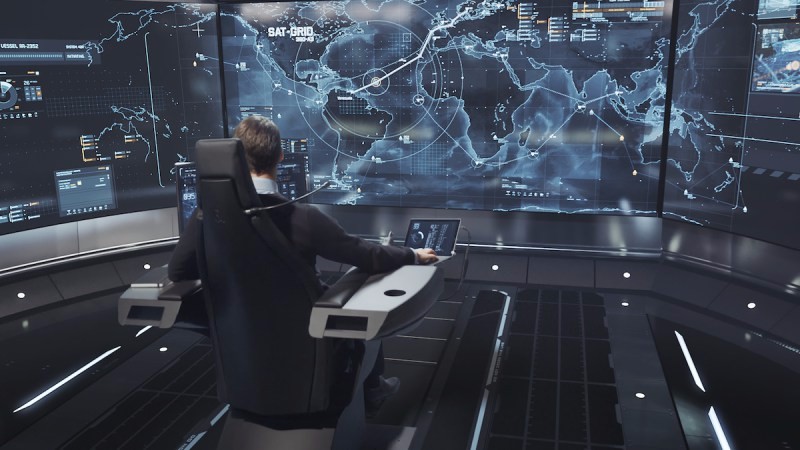 The research was undertaken by VTT and University of Tampere research centre TAUCHI in collaboration with Rolls-Royce, with the aim to explore the lessons learned from other industries such as aviation, energy, defence, and space exploration, where remote operation is more widely used.
The research was undertaken by VTT and University of Tampere research centre TAUCHI in collaboration with Rolls-Royce, with the aim to explore the lessons learned from other industries such as aviation, energy, defence, and space exploration, where remote operation is more widely used.
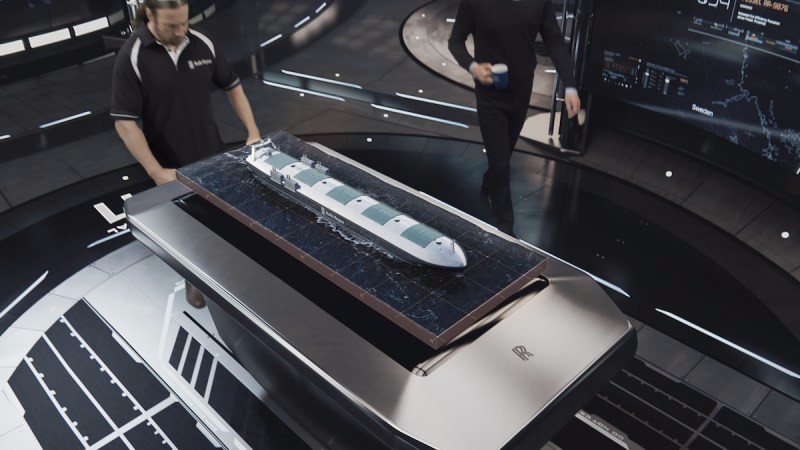 Rolls-Royce’s autonomous, unmanned vision of future shipping, known as the ‘oX’ operator experience concept, was first introduced by the company 2014. Previous studies have looked at the user experience of future command bridges on Platform Supply Vessels, container ships and tugs.
Rolls-Royce’s autonomous, unmanned vision of future shipping, known as the ‘oX’ operator experience concept, was first introduced by the company 2014. Previous studies have looked at the user experience of future command bridges on Platform Supply Vessels, container ships and tugs.
In April, Rolls-Royce is set to reveal separate research findings, which the company believes will set the direction for the development of remote and autonomous shipping.


 ο ψηφοφόρος της κλανιόλας
ο ψηφοφόρος της κλανιόλας η εποχή ζητά ενσυναίσθηση, συνείδηση και συμμετοχή, πολιτική ανασκόπηση
η εποχή ζητά ενσυναίσθηση, συνείδηση και συμμετοχή, πολιτική ανασκόπηση γεωπολιτική για καμένους εγκεφάλους
γεωπολιτική για καμένους εγκεφάλους